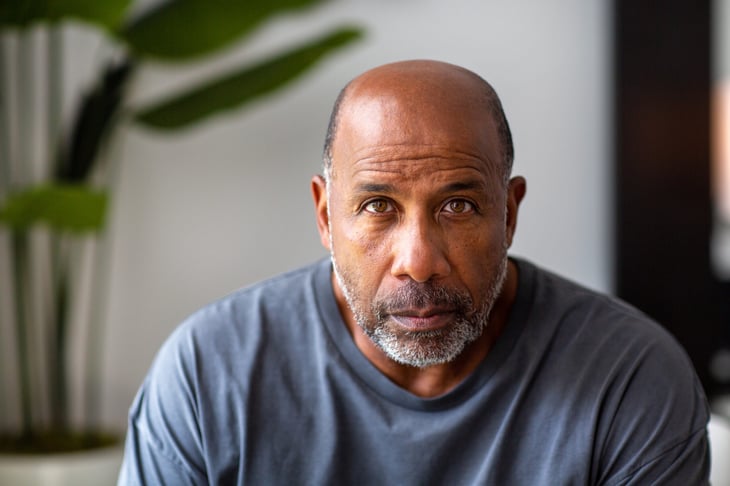
Editor's Note: This story originally appeared on NewRetirement.
There are all kinds of things we say we want to do, but very often we don’t get them done. For example, maybe you want to exercise more, eat better, read “War and Peace,” or develop an adequate plan for a secure financial future … But, are you actually succeeding?
Apparently, it is not enough to want to do something. And, cognitive psychologist Amanda Crowell suggests that there are three mental blocks that stop us from achieving goals like the ones listed above.
Crowell is a cognitive psychologist as well as a professional coach and comedian. She spent three years studying motivation. (You can hear her full TED Talk here.)
Below we explain Crowell’s roadblocks to success, specifically for how they relate to retirement planning. More importantly, we will show you how you can easily overcome them.
Block #1: You Think You Can’t Do Better

You probably have really really good rationale for thinking that you cannot plan a secure retirement. Here are a few common and relatively valid reasons that people think they can’t do better:
- You haven’t saved enough money.
- Personal finance is complicated, and you just don’t have the basic knowledge to get it done.
- Hiring someone to help might be embarrassing and just too expensive.
These are real reasons. Yes, retirement planning is going to be difficult if you relate to any of these bullets or something related.
However, there is significant hope. You can absolutely overcome the idea that you can’t do better.
How to Overcome Block #1: Just Try

If you think you can’t do something, you are going to have to start to go ahead and embrace failure. Change the idea that failure means the end and instead see failure as a beginning. Failure IS the success; failure means you are trying, and trying is what is important.
Trying, learning from failures, and continuing to try are the keys to overcoming the block of thoughts that you can not do it.
For example, last night my kid was trying to snuff out a candle by throwing playing cards at it. It is a trick and he used to be pretty good at it, but last night, he was failing.
Rather than getting frustrated, he tried changing the angle and saw he got closer. He threw less hard and saw he got closer. He embraced the failures and learned from them.
So, each failure was, in actuality, a success. Each failure got him closer to success.
It is important to think of each failure as just a step toward progress. It is the effort — the fact that you are doing anything at all — that is important, not the outcome.
A lot of people start the NewRetirement Planner, get to their Retirement Dashboard, and see that maybe their finances are not secure.
There are two types of people on this page:
1. Quitters: Some people quit right away or feel like quitting. They are overwhelmed with worry that they might not be able to fund their desired lifestyle. What this group of quitters is not seeing is that they just experienced a huge success.
- They did something. They got started! (You might be surprised to know, that according to Fidelity, only 20% of all Americans and 25% of baby boomers have written retirement plans.) So, what these quitters might not realize is that by documenting a plan, they are already doing way WAY better than most.
- They also might not see that they have taken the first step and, without that first step, they would never find success. That first step is a HUGE accomplishment.
If you can re-frame frustration as success then you are likely to keep trying and will find your way to financial success. (See below.)
2. Keep Trying Types: Others get to the dashboard and while they might not like what they see, they start trying different scenarios. They realize that retirement planning is a process.
- The process starts with getting organized.
- It continues with tweaking and making compromises.
- And, retirement planning persists with constantly making updates over the rest of your life.
Block #2: I Am Not Good at This

If you are in your 50s or 60s and you don’t already have a detailed written plan for your retirement, you might think that it is too late and that you are simply not good at personal finance, so why start now?
You probably have a lifetime of financial habits — maybe some good ones and probably quite a few bad ones. And, you might even think that it is impossible to upend 30 to 50 years of how you view yourself and money.
However, it is really not too late.
How to Overcome Block #2: Discover You Aren’t Alone

Crowell suggests a simple solution: “Find people like you (people who are struggling, but want to do better) and share your concerns with them.”
Look, you might think you are the ONLY one concerned about retirement finances. I promise you, you are not. Research shows that financial IQ is ridiculously low — no matter wealth and education levels. Shockingly few people actually know what they are doing with their money. (Take a financial literacy quiz.)
However, many people find that it is too uncomfortable to talk about finances with close friends — even if you know that they are in the same boat as you. If this rings true, then do anything you can to change your own financial identity. See the tips above about doing something — anything — and feel proud of taking steps to educate yourself about money.
The reality is that reading an article about retirement or creating a written retirement plan IS MORE than most people do! So, if you are here, you ARE good at this — better than most anyway!
The NewRetirement Planner takes you step by step through documenting your current financial situation and gives you endless ideas for improving your situation.
Starting a plan is just the first step. The system saves your data so you can work on it over time. The most successful planners take a month or more to create a plan. And then, they are careful to keep it updated over the rest of their life.
Each time you try something different in your retirement plan, you are becoming more and more of a retirement expert yourself! You can change your financial identity.
Block #3: I Don’t Want to Plan My Retirement

Lots of people want to retire. Far fewer people want to plan retirement — and especially to create a financial plan.
Sure, you know you should do it. But, you don’t want to be uncomfortable. You don’t want to discover that maybe you can’t retire in the way you want to. You have too many other interesting things to do.
How to Overcome Block #3: Identify Your Intrinsic Motivator

In her TED Talk, Crowell argues that too many people are focused on extrinsic motivators — not intrinsic ones. And, this is a big mistake.
Examples of extrinsic reasons for planning retirement are “you know you should” or “you think other people are doing it and you ought to plan also.” However, extrinsic reasons are scientifically proven to be bad motivators.
It is better to focus on intrinsic motivations for planning retirement. Crowell says that intrinsic reasons are “reasons that come from inside of you, your interests, your curiosity, or … your long-term hopes and dreams.”
She continues, “If the work you want to do is hard, there will be urges in the moment to quit, and it is intrinsic interest that keeps you focused on the steps you need to take.”
Think about these powerful examples of intrinsic motivators for having a retirement plan:
- What do you want to do in retirement? How are these motivations impacted by your retirement finances?
- Who will take care of you if you can’t fund adequate health care for yourself (and/or your spouse)?
- How can you be sure that your money lasts as long as you do?
The NewRetirement Planner asks you about what you want to do in retirement and it gives you powerful detailed budgeting tools to help you imagine your future and how you are going to pay for it.
It is really important to plan lifestyle goals as well as financial goals.




Add a Comment
Our Policy: We welcome relevant and respectful comments in order to foster healthy and informative discussions. All other comments may be removed. Comments with links are automatically held for moderation.